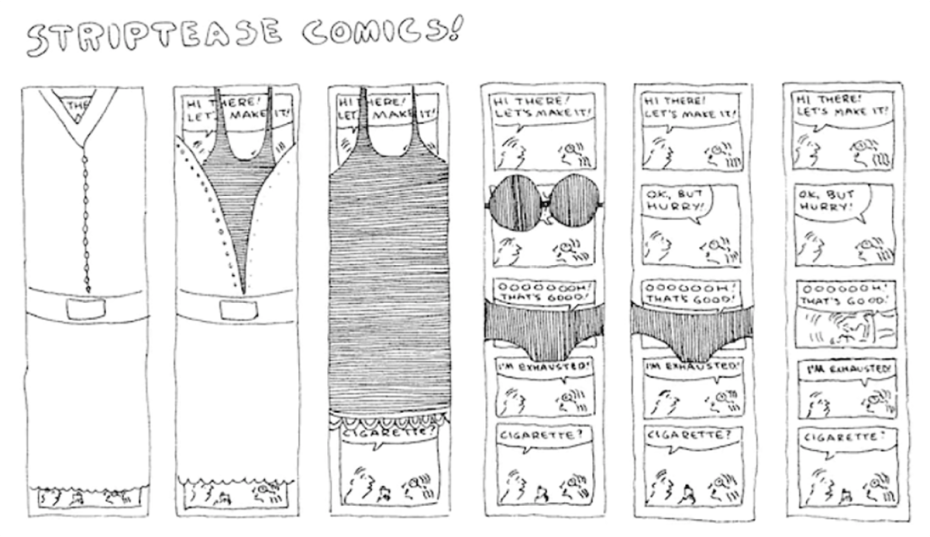A new book from the New York Review of Comics collects the work of cartoonist Ed Subitzky. Poor Helpless Comics! will be released on October 10.
The book is comprised mostly of Subitzky's work in The National Lampoon in the 1970s, when he was part of a group that regularly contributed to the magazine's legendary "Funny Pages" section, also including Gahan Wilson, Bobby London, Shary Flenniken, B.K. Taylor, and Ron Barrett.
Subitzky's comics stand out because of their minimalist artwork; many are densely packed with tiny panels filled only with very loosely drawn faces. The comics often cleverly deconstruct and subvert the comics format, and it almost feels like his defiantly primitive drawings are part of that subversion.

Throughout the book, there are pages with a transcribed interview with Subitzky conducted by brilliant cartoonist (and fellow comics-deconstructor) Mark Newgarden.
MN: How do you think your drawing style contributes to the success of your work?
ES: A great deal. I think for the kinds of half-formed worlds I create, only wispy little characters like I draw can live in those worlds. It's consistent. My characters are barely there on the page. They have almost no physical presence at all. I think part of me is like that, satisfied to go into a corner, read a book, and say, "World, don't bother me." … Sometimes I think you can hardly call my stuff "comics" because the art is almost incidental, it's really all about what the characters do and say.

In keeping with the interests of National Lampoon, many of the comics are about sex, specifically casual sex. But through the silly humor and formalist jokes, the underlying theme of almost all of them is the struggle to make a human connection.
MN: Are you surprised that, decades later, so much of your work completely holds up? It feels very contemporary.
ES: Yeah. I was happy about that. I was very happy. Maybe that's because my work deals with people and not the issues of the the day. It was all about what it means to be —
Susan Hewitt [ES's wife]: — human.
ES: If what you do is all about what it means to be human, it'll never go out of date. Until humans do. That will happen too.

—

Images posted with the permission of New York Review Comics






